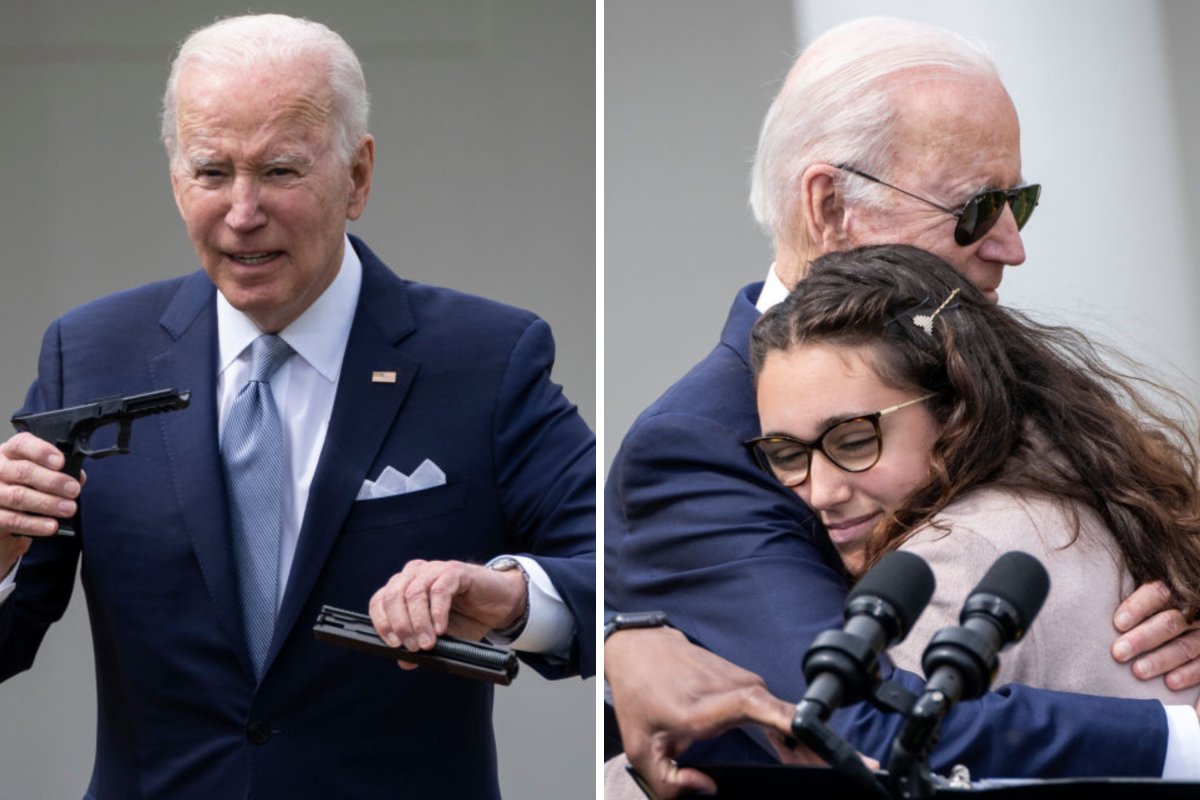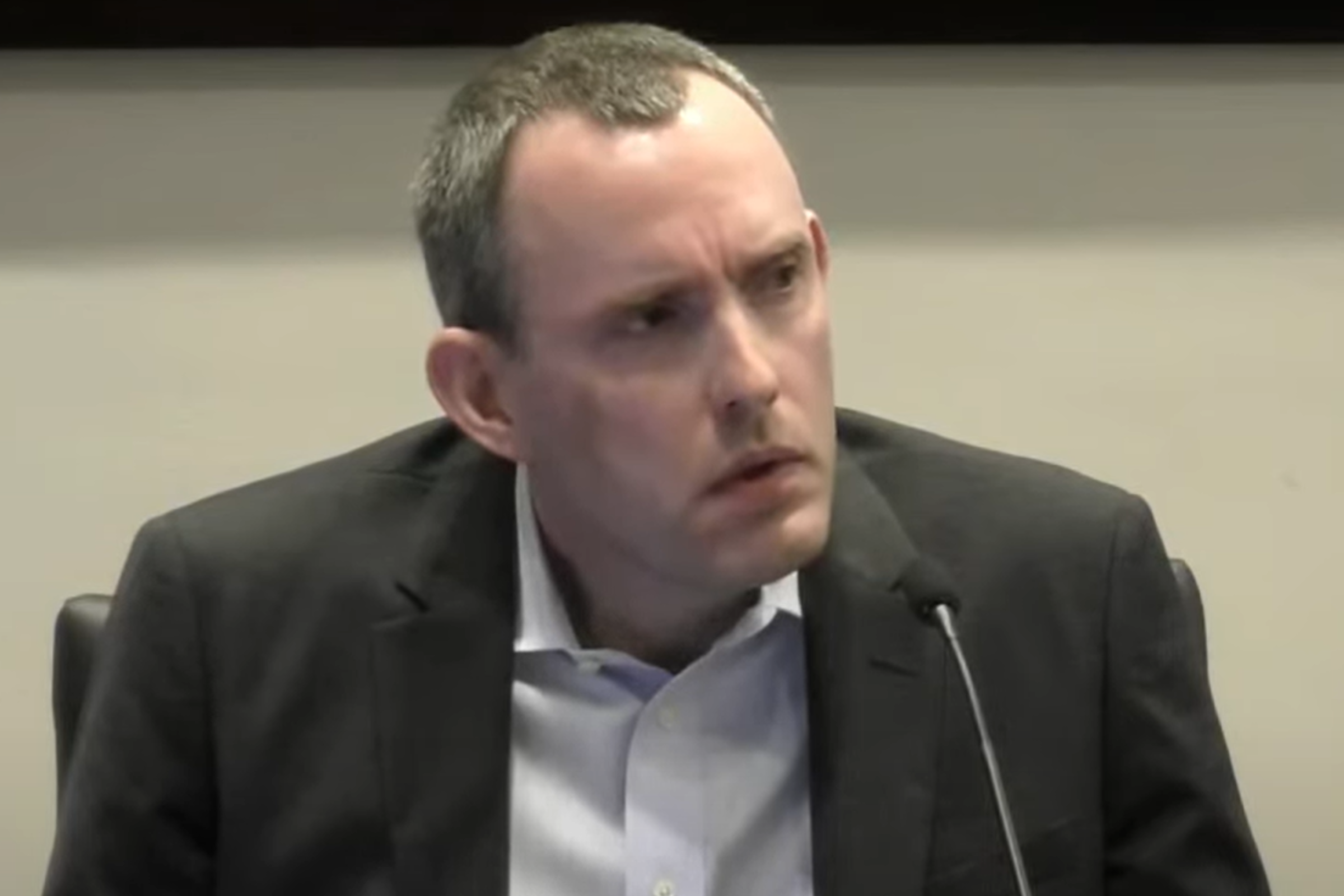New gun safety measures took effect across several U.S. states on January 1, following a year in which the country experienced 503 mass shootings, according to the Gun Violence Archive.
California, Illinois, Colorado, and Washington, among other states, introduced stricter regulations aimed at curbing gun violence.
In California, concealed firearms are now banned in 26 areas, including parks, churches, and zoos. Illinois prohibited certain semiautomatic weapons, like AK-47s and AR-15s.
Washington introduced a 10-day waiting period for firearm purchases and mandatory safety training, and Colorado banned untraceable "ghost guns."
Will these stricter laws effectively reduce mass shootings and gun violence? Newsweek sought expert opinions on their potential impact.

Dr. Jihoon Kim: New State Gun Laws May Be Ineffective. The Root Cause of Violence Must Be Addressed
Gun laws in the United States are often viewed through two opposing lenses: Gun rights and gun control.
The new state gun laws in 2025 continue to reflect this division, with each side pursuing its own policy agenda. States advocating for gun control have enacted stricter regulations on firearm possession and carrying, aiming to mitigate gun violence to some extent.
Supporters of stricter gun control argue that increased firearm regulations can reduce gun violence by limiting accessibility and restricting their use in various contexts.
However, a critical question remains: Does restricting firearms truly enhance societal safety?
For instance, banning assault weapons might reduce casualties in mass shootings directly involving firearms.
Yet, a more pressing concern arises: If an individual is intent on carrying out a mass shooting but cannot access an assault weapon, they may resort to alternative methods such as using pressure cooker bombs—like those in the Boston Marathon bombing—or even employing a vehicle as a weapon.
In such cases, while the number of gun-related casualties may decrease, the overall impact of the attack may not significantly differ.
Ultimately, reducing gun violence may be attainable through stricter firearm regulations, but focusing exclusively on regulating guns could shift the form of violence without addressing its underlying causes.
To effectively minimize harm, broader solutions addressing the root issues of violence must be considered beyond limiting access to firearms.
Jihoon Kim, Associate Professor, Department of Criminology and Criminal Justice, The University of Alabama.
Dr. David Rosenbloom: New State Gun Laws Can Reduce Violence
New state laws can be effective in reducing gun violence and deaths. It is a fact that the states with the strongest gun safety laws, for example Massachusetts, Rhode Island, and Hawaii, have the lowest gun violence death rates.
States with the weakest laws, for example Mississippi, Louisiana and New Mexico have the highest gun violence death rates.
There is good research evidence about what needs to be in state laws for them to be most effective: Ban the sale of assault weapons—ban or strongly regulate the open carry of guns—require background checks for all sales and transfers; have waiting periods to get a gun—enact and enforce extreme risk protections to remove guns from people who are likely to use them harm themselves or others.
David Rosenbloom, PhD, Professor Emeritus, Boston University School of Public Health.
Dr. Matthew Valasik: If New State Gun Laws Are Constitutional, Local Communities May Benefit
It is difficult to predict whether or not any particular law will reduce gun violence, as a motivated offender will not be considering the negative sanctions that will follow their actions.
Gun violence is a complex phenomenon to legislate effectively, however, any public safety initiative that places greater accountability on gun users, promoting responsible gun ownership and discouraging risky or reckless gun usage is beneficial for local communities and society as a whole.
As long as the new laws are constitutional then there is no harm in trying new initiatives to protect local communities and American citizens.
Matthew Valasik, Ph.D., Associate Professor of Criminology and Criminal Justice, The University of Alabama
Dr. Grant Reeher: New State Gun Laws Fail to Tackle Suicide and Gang Violence
The short answer is no, those kinds of laws are not likely to change much, and recent research tends to support that view. The reason, I think, is that they don't really get at the main causes of death by firearm.
What must always be front of mind is that most gun deaths are suicides—as much as two-thirds, depending on the year (a slightly lower percentage in most recent years). None of those provisions address that problem.
For homicides, the biggest category is made up of individuals with previous violent criminal records, often associated with gangs, killing other criminals or members of gangs—or people who happen to be present during those shootings. This activity is concentrated in the poorer, more minority-heavy parts of cities.
After that category, it is someone killing someone else out of passion, or during a robbery, either of person, car, or house.
Again, none of the kinds of policies that you list will do much about those events. Those policies are currently popular because they appear to respond to mass shootings, which, although making up only a tiny sliver of shooting deaths, drive the media attention and much of the political conversation regarding guns, and also because they are relatively cheap to implement—a ban on something or marking off a "gun free" area (courts are pushing back on the latter, by the way).
But actually, addressing the violence problems that I've described would take significant public investments in mental health interventions and in socioeconomic interventions in areas of concentrated poverty, not a simple ban on a type of trigger or cordoning off a public park.
Grant Reeher, Professor of Political Science, Senior Research Associate, Campbell Public Affairs Institute (Director, 2009-2024), Maxwell School of Citizenship & Public Affairs.
Dr. Susan Dewey: Gun Crime Involves Illegal Guns, Law-Abiding Gun Owners Face Restriction
My recent book with Tuscaloosa County District Attorney Hays Webb and Brittany VandeBerg (Gun Present: Inside a Southern District Attorney's Battle Against Gun Violence) builds on a significant body of research which clearly demonstrates how crimes committed with guns almost always involve illegally obtained firearms.
Implementing more restrictive gun laws ignores this fact and, in so doing, only serves to further restrict the rights of law-abiding gun owners.
Susan Dewey, Ph.D., Professor, Criminology and Criminal Justice, The University of Alabama.
Dr. Matthew J. Dolliver: New State Gun Laws Can Curb Violence if Societal Causes Addressed
The recent surge in state-level gun legislation reflects a broader commitment to reducing firearm-related violence.
Policies like California's restrictions on public firearm carry and Minnesota's ban on high-risk weapon modifications demonstrate a recognition of the need for proactive measures.
While individual laws address specific risks, their success will depend on consistent enforcement and integration with broader societal efforts to reduce violence.
The potential for these laws to yield meaningful change will be shaped by their ability to address underlying social determinants and foster safer communities.
Dr. Matthew J. Dolliver, Associate Professor of Criminology, Professor of Criminology at the University of Alabama.




















 English (US) ·
English (US) ·